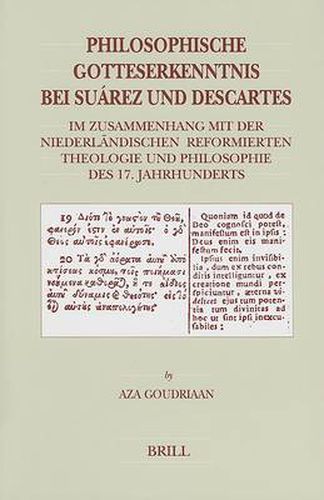Readings Newsletter
Become a Readings Member to make your shopping experience even easier.
Sign in or sign up for free!
You’re not far away from qualifying for FREE standard shipping within Australia
You’ve qualified for FREE standard shipping within Australia
The cart is loading…






This volume deals with basic questions regarding the philosophical knowledge of God in Suarez and Descartes, two very different, but historically linked early-modern philosophers. It has two parts devoted to Suarez and Descartes respectively. Each section examines the path along which philosophy can acquire knowledge of God, the adequacy which is ascribed to this knowledge, as well as selected topics of the doctrine of God’s attributes. Special attention has been given to both critical and positive reactions to Suarez and Descartes on the part of 17th-century Dutch Reformed theologians. The author argues that Descartes, in comparison with Suarez, reduced the theological interests of philosophy and also limited the starting points for attaining to a philosophical knowledge of God. On the other hand, Descartes elevated the presumed adequacy of this knowledge.
$9.00 standard shipping within Australia
FREE standard shipping within Australia for orders over $100.00
Express & International shipping calculated at checkout
This volume deals with basic questions regarding the philosophical knowledge of God in Suarez and Descartes, two very different, but historically linked early-modern philosophers. It has two parts devoted to Suarez and Descartes respectively. Each section examines the path along which philosophy can acquire knowledge of God, the adequacy which is ascribed to this knowledge, as well as selected topics of the doctrine of God’s attributes. Special attention has been given to both critical and positive reactions to Suarez and Descartes on the part of 17th-century Dutch Reformed theologians. The author argues that Descartes, in comparison with Suarez, reduced the theological interests of philosophy and also limited the starting points for attaining to a philosophical knowledge of God. On the other hand, Descartes elevated the presumed adequacy of this knowledge.